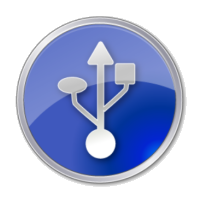 Connect a USB device to your PC and it’ll probably work right away. Even if it needs a driver, Windows may be able to find this on its own: all you'll have to do is click a button or two, and wait.
Connect a USB device to your PC and it’ll probably work right away. Even if it needs a driver, Windows may be able to find this on its own: all you'll have to do is click a button or two, and wait.
Life isn't always quite so easy, of course, and occasionally you might find one or more USB devices aren't working as you expect. Device Manager isn't great at diagnosing USB-related problems, but there are free alternatives that can help -- and USB Device Tree Viewer is one of the best.
The program is tiny (a 195KB download), portable and entirely free. Unzipping it produces both a 32 and 64-bit version; run this -- ideally as an administrator -- and you're ready to go.
USB Device Tree Viewer has a straightforward two-pane interface. On the left is a tree representing your computer, USB controllers, hubs and devices. Clicking any of these then displays a text report on the right with more information.
We found this approach immediately provided us with useful data. We could see at a glance that we had two USB-connected devices; a USB key, and a mouse. They were both connected to the same hub. And, curiously, another port on the same hub was highlighted with an exclamation mark icon, indicating a "device general failure", perhaps very helpful if we were troubleshooting.
This is just the start, though. Clicking any of our devices displayed a lengthy report on it. We discovered our USB storage device's driver, device ID, manufacturer, volume name and mount point, power features, speed requirements, and all kinds of low-level details -- more than 80, in total.
As a bonus, right-clicking a device displayed various actions we could perform on it: remove, restart, restart the port, or view the device properties (the same information you’d see in Device Manager).
USB Device Tree Viewer isn't exactly aimed at beginners. Its reports are exceptionally detailed, and most people won't have the faintest idea what the bulk of the information actually means (we certainly didn't).
Still, if you're happy to browse Device Manager, there's nothing to scare you here. Look past the cryptic low-level details and you'll find plenty of more useful data, and overall USB Device Tree Viewer is a great way to learn more about your current USB hardware and devices.

